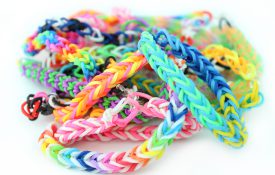-
Few Friends or Many: Which Is Best?
LiveScience: Whether one has a small, cozy group of friends or a larger, more boisterous gaggle may depend on individual personalities and circumstances, but new research suggests when deciding which type is best, socioeconomic conditions
-

Too Big or Just Right? Optimal Circle of Friends Depends on Socioeconomic Conditions
Some people like to have a few close friends, while others prefer a wider social circle that is perhaps less deep. Research suggests that the optimal approach may depend on socioeconomic conditions.
-
But How Do You Really Feel? Someday the Computer May Know
The New York Times: In a Cairo school basement, two dozen women analyze facial expressions on laptops, training the computers to recognize anger, sadness and frustration. At Cambridge University, an eerily realistic robotic head named
-
What Makes Self-Directed Learning Effective?
In recent years, educators have come to focus more and more on the importance of lab-based experimentation, hands-on participation, student-led inquiry, and the use of “manipulables” in the classroom. The underlying rationale seems to be
-
Planet in a Jar: Studying Behavior on a Worldwide Scale
No jar exists that is large enough to contain Planet Earth. Most social and behavioral scientists who study the planet as a whole concede that they can’t set up controlled experiments like scientists who study
-
Why Does That Conductor Look So Creepy?
Several movies have tried and failed to generate lifelike animations of humans. For example, the lifeless faces in Polar Express made people uncomfortable because they tried to emulate life but didn’t get it quite right.

